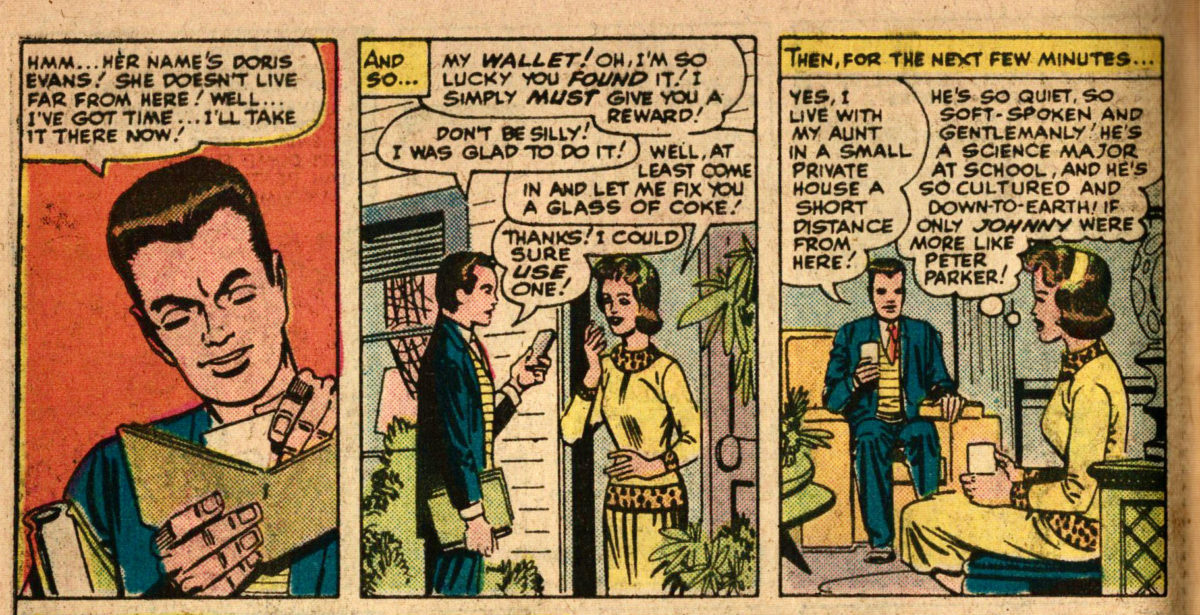Featuring: Thor
Release: January 4, 1966
Cover: March 1966
12 cents
Stan Lee the literary lion!
Jack Kirby the pencilling pussycat!
V. Colletta the delineating dragon!
Artie Simek the lettering looks it!
16 pages
| Previous | #465 | Next |
|---|---|---|
| Journey Into Mystery #125, Story B | Reading order | Thor #126, Story B |
| Thor | Thor #126, Story B |
“By the cloven hooves of Pan!! What doth it take to defeat the Son of Odin!??!” “A stronger arm! A stouter heart! A nobler soul! And none doth Hercules possess, thou blabbering, blustering, boastful buffoon!”
This is the first issue of Thor. It’s also the 126th issue of Thor.
Which is a little confusing. Last month (well, last week for us), we read Journey Into Mystery #125, which starred Thor, as it has for the last 40+ issues. Now the comic will just be called Thor.
Why not call it Thor #1?
For complicated and probably shady legal and financial reasons, they found it more sensible to keep the numbering of the old magazine.
Thor’s name has been prominent on cover going back to issue 104. But it’s no longer “Journey Into Mystery with the Mighty Thor”. It’s just: “The Mighty Thor”. The official title as seen in the indicia is simply “Thor”.


Starting a new superhero title that keeps the numbering of the horror title will become a common practice… though not soon. We’ll talk more at the end of this post about Marvel’s history of naming comics. Let’s get into the comic, starting with the title.
Continue reading “Thor #126”




























